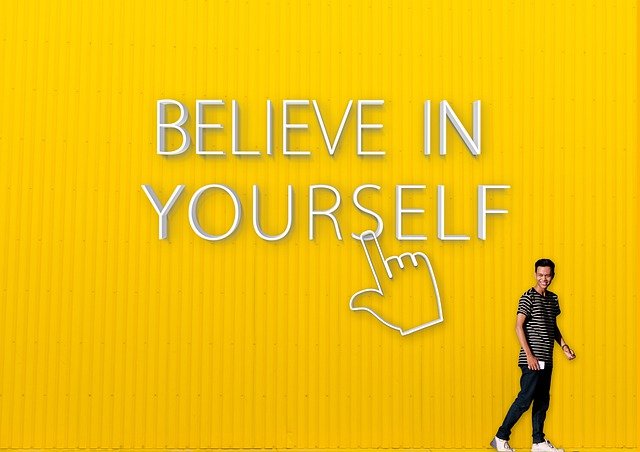Why Is It Important To Have Self-Esteem At Work?
The ability to have high self-esteem may be the most significant psychological resource we have for coping with the problems that lie ahead. That difficulty is particularly visible in the workplace, where it is becoming more clear that self-esteem is no longer an emotional luxury, but rather a need for survival.
A growing body of studies is helping to highlight how crucial self-esteem is in our capacity to take chances, develop new skills, be creative, accept criticism, interact with people fairly and benevolently, be productive, and be self-confident. To perform at our best in our families, companies, and communities, we must foster these critical characteristics in ourselves and others.
At this point in history, self-esteem, which has always been a supremely vital psychological survival necessity, has now now become a supremely crucial economic survival need.
It has been fascinating to observe the transformation from a manufacturing society to an information society — as well as the transformation from a local economy to a global one. We are living in an era of very fast change, characterized by amazing scientific and psychological breakthroughs and advances.
As a percentage of our total economic activity, muscle labor is becoming more insignificant, while mind work is on the increase. This is the day of the knowledge worker, as the saying goes. It is necessary to establish new management approaches that are suited for managing a workforce that is more educated, more autonomous, and more creative. Even psychotherapists and counselors need to be more aware of these difficulties as the number of clients suffering from job-related stress continues to rise.
The demands of the workplace in this time of rapid change, choices, and difficulties need a higher capacity for creativity, self-management, personal responsibility, and self-direction — all of which are characteristics associated with high self-esteem — from employees.
1.Having Faith in Yourself
One of the most basic definitions of self-esteem is confidence in one’s own intellect, one’s own thought processes. As a result, put your faith in your capacity to learn, to evaluate, and to make decisions. As a result, the most fundamental way in which we can think of self-esteem as a survival need is in the context of understanding that for humans, the mind, or consciousness, is the fundamental means of survival on which we rely to keep us in touch with reality and guide our behavior in the appropriate direction.
An person who distrusts his or her own intellect on a fundamental level will be greatly handicapped in dealing with the choices and possibilities that life brings.
When dealing with the problems of life, good self-esteem may be thought of as the immune system of awareness, offering resilience, strength, and the ability to regenerate when dealing with them.
2.The Capacity to Make Determinations
According to research performed among top executives, one of the most common reasons for failure is the inability to make choices on a timely basis. That incapacity is caused by low self-esteem, which is characterized by a skepticism of one’s own intellect and judgment.
In many cases, a large quantity of information must be gathered and processed in order for managers to make sound choices, and the involvement of others is almost always a contributing component.
Several articles have been published on the need of making “balanced” judgments, but this must imply more than just getting enough votes. Consensus-thinking may actually lead to a reduction in the number of creative options available.
3.Making Decisions Based on a Set of Guidelines
I believe that making decisions requires considering the broadest possible range of factors in order to make the best possible choice. Of posing the question to oneself
1. What are all of the things that I am aware of that might potentially have an impact on my decision?
2: What are all of the reasonably foreseeably negative outcomes of my decision?
3. Who is most likely to be impacted, and in what way?
In other words, a highly aware individual seeks for the biggest quantity of relevant information that he or she can obtain in order to influence the decision-making process. Neither my choice nor the decision of another is in conflict with each other. It is a question of decency and truthfulness in the face of facts. One of the characteristics of high self-esteem is a strong reality orientation — and then the ability to put your confidence in your own thinking to make the best option.
A good sense of self-worth will involve or even require that you seek feedback from others in some situations. This does not necessarily imply that you should participate in opinion polls. A person may be many steps ahead of the other persons involved and be able to see things that others are unable to notice.
For example, the Wright brothers did not bother to conduct a poll before taking to the air.
The consensus approach of decision-making has its place, but it is dependent to a certain part on the capacity of innovators or visionaries to communicate their ideas effectively and persuasively. Some people are unable to explain their vision well enough in order to get support for what they believe to be the optimal course of action. Because of this shortcoming, several really significant concepts are lost.
A strong degree of self-esteem is essential for an innovator in order to effectively communicate the benefits of a new product, technique, or management strategy.
4.Approaching Others with a Positive Attitude
People who are content with their own self, who have faith in themselves, and who are at peace with themselves are more emotionally and psychologically free to approach others with a compassionate heart.
More positive self-esteem leads to more collaboration, shared excitement, and agreement than those who are more self-doubting, insecure, and who see human connections in terms of a you against me, win/lose paradigm, according to research.
Whether you are thinking about people in the context of a large organization or in their personal lives, people who trust themselves have a much greater ability to deal with others with respect and benevolence than those who do not, with predictable outcomes in terms of their ability to achieve consensus than those who do not.
5.Consistent belief in our own ability to achieve success
Moreover, it has a connection with the worthiness component of self-esteem — the idea that we are worthy and deserving of success and pleasure as well as trust, respect, and love —
The pursuit of ideals constitutes the whole of one’s existence. In order to pursue values, I must first value the person who will benefit from my values, which is myself.
If I don’t believe I am deserving of success or happiness at my core, I will almost certainly not achieve them, and if I do, I will almost certainly not enjoy them. We see folks at work all the time who are competent but do not believe they are worthy. As a result, they labor and work and never feel entitled to take a break or appreciate what they have accomplished.
People who have doubts about their own effectiveness and value are more likely to be afraid of other people, and as a result, they are more likely to get into confrontational relationships with them. These individuals are seen as a potential danger.
If, on the other hand, we have faith in our own abilities and value, we are considerably less prone to get into a “you against me” frame of mind. More often than not, we will create cooperative ties and will be more adept at reaching a unified front.
Social Cooperation At Extremely High Levels
Allan S. Watterman, a psychologist in New Jersey, conducted a thorough evaluation of all of the research on social cooperation and how well it corresponds with a high level of individual development. He discovered that it was highly connected with not just social cooperation but also with the attributes of kindness, generosity, and compassion.
People who have high self-esteem are not motivated to establish their worth by evaluating themselves against a comparable standard; they are not motivated to make themselves seem superior to others in any way. Their happiness comes from being themselves rather than from being better than someone else.
6.Being Satisfied With Your Ability To Make A Difference
I used to be a member of a team that was really unproductive. One of the primary reasons behind this was that many of the folks on the team were under the impression that they couldn’t make a difference. They didn’t believe that their input would be taken into consideration at all. The more they grew to think that their contributions would be valued, the more readily they were able to work together.
It was unmistakably a matter of self-esteem at stake.
It is a fundamental human urge to be seen to others, to be recognized and valued for who we really are as individuals. Moreover, it is only natural that we want to work in an atmosphere that encourages us, encourages our sense of self-worth, encourages the belief that our contribution can and will make a difference.
As economic cycles shift, there are times in which people are either out of work or worry that they will be out of work. Those whose self-esteem, emotions of competence, and sense of self-worth are not only drawn from their work would do better during difficult times.
Internal Security is a skill that you should have.
My definition of competence is the sense of internal security that comes from placing faith in your own mental processes rather than depending your sense of self-worth on outcomes that do not always depend solely on your actions and decisions.
I delivered a self-esteem class in Detroit many years ago, at a time when the federal government was still debating whether or not to bail out Chrysler Corporation. In the training, there were a lot of Chrysler executives there, and I explained to them that “this is what is wrong with basing your self-esteem on performance per se or money producing abilities per se.” Right
why is it important to have self-esteem at work?
Now, some individuals you don’t even know are debating whether or not to rescue Chrysler from its current predicament. Is it logical that you are prepared to put your self-esteem in their hands in order to get their approval? If the concept offends you, that’s OK; it offends me. Your self-esteem shouldn’t be dependent on variables over which you have no influence in any way.”
There are many individuals who find it difficult to accept and comprehend this notion.. In our society, having value is associated with getting a paycheck or working in a profession where you do something effectively. This is especially true for males, but it is also true for women increasingly.
7.Our sense of self-worth is based on our ability to learn.
We must all make a commitment to lifelong learning since information is expanding at such a quick pace that we can stay productive in our jobs. This is a huge change in perspective for many people. To accept a more abstract perspective, in which our self-esteem is not based on what we have or know, but on our potential to learn, is not always simple or painless.
This is critical in any economic climate, but more so in uncertain economic times. Any unexpected shift might necessitate the need to acquire something new, and a person should think in terms of his or her own processes, rather than abilities per se, when considering this.
In the case of engineering, for example, it is more instructive to inquire, “How did I move from knowing nothing about engineering (or sales, or training, etc.) to knowing quite a bit about it?” What skills and knowledge do I already have in the area of learning new things that I can use to this new challenge?”
10.Success have high expectations of them.
Those who are in a position to teach or train others must build a respect for the capacity to learn on their own. In the workplace, managers must maintain high standards for themselves and those under their supervision, while also creating an atmosphere in which it is acceptable to make errors that are not harmful to the organization.
Making a disciplined, risk-taking, non-punitive workplace is very difficult to do. Holding people to high standards of performance while also enabling them to develop and learn is not a contradiction, but it does need a great deal of thought and planning in order to put into practice.
Alternatively, you may start with the assumption that they will have something valuable and interesting to say.
Consider how you would behave if you did really feel that the individual is capable of thinking and that their viewpoint is worthwhile. Afterwards, put those practices into practice for 30-60 days, paying attention to any changes that occur.
While it comes to establishing high expectations, when delegating work, ask the individual whether they are capable of completing the assignment, if they are prepared to be accountable for its completion, and so on.
Assist in reaching a strong understanding of what has been promised. After the assignment is completed, go back and evaluate it.
11.Setting Objectives is a Responsibility
Every effort should be made to allow groups to define their own expectations and goals within the context of the organization’s overall objectives wherever practicable. It enhances the sense of personal independence that one has. Furthermore, according to some study, when groups create their own objectives, they are more likely to set them higher than when others set their goals for them.
Managers who have a high sense of self-worth find it easier to relinquish control over goal-setting and other responsibilities. When using management approaches such as shared goal setting, it is likely that it is beneficial to bring in a self-esteem specialist who can clearly explain what type of difference it will make in the workplace and why it will make a difference.
Initially, self-esteem training seminars are beneficial, with the ultimate objective of incorporating the material into everyday practices as soon as possible. People who understand how self-esteem functions in the human mind will be able to see chances for application that an outsider would not be able to identify.
A manager is not and should not be expected to be a psychologist in every situation. It has never been my opinion that bosses should be like this. Furthermore, even if a boss is interested in psychotherapy, workers are unlikely to consent to the treatment.
12.Challenge, stimulate, and stretch your mind and body.
According to research, we get the greatest performance out of individuals when we challenge them to accomplish a little more than they believe they are capable of.
In other words, we put them through their paces. We establish high goals for ourselves, but not so high that they become paralyzing.
I believe that we may apply the same principle to ourselves as well. Managers must set their own expectations realistically, to be sure, but also high enough to challenge, excite, and extend their teams and themselves. The difficulty with every individual who overestimates his talents is that there are a hundred other individuals who underestimate their own abilities in the same way.
As the CEO of a company, I would place a strong focus on instilling in myself and my staff the belief that individuals are capable of achieving goals that they do not currently feel they are capable of achieving on their own. People who have a positive outlook on life are more likely to see beyond their own constraints.
When I was educating managers on how to help their workers thrive, I would tell tales and provide all sorts of examples in the hopes of sparking the manager’s imagination. This is not something that can be reduced to a training handbook.
13. There are no shortcuts to achieving self-esteem.
There are no quick cuts to having a strong sense of self-worth; we can’t get away with lying to ourselves. In contrast, if we do not live consciously and authentically as well as responsibly and with high integrity, we may be very successful as well as popular and affluent as well as members of all the correct clubs, but we will have merely a semblance of self-esteem.
Self-esteem is always a personal experience; it is defined by what we think and feel about ourselves, rather than what we think and feel about someone else.
When it comes down to it, self-esteem is the reputation we have with ourselves.





